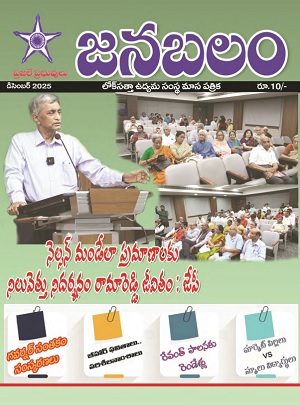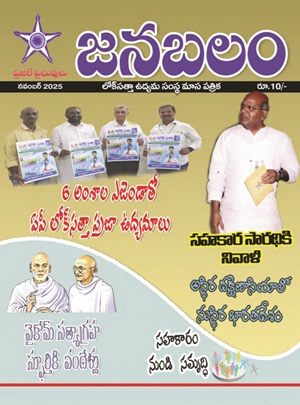- In 2003, Section 6A was incorporated in the Delhi Special Police Establishment Act, 1946 (DSPE Act, 1946) dealing with CBI. This section mandated prior approval of government before CBI took up investigation of cases of corruption under Prevention of Corruption Act, 1988 (PC Act, 1988) relating to officers of the rank of Joint Secretary and above.
In 2014, in the case of Dr. Subramanian Swami vs Director, CBI and others (writ petition (civil) number 21 of 2004 of Centre for Public Interest Litigation vs Union of India) the Supreme Court struck down Section 6A as unconstitutional and violative of rule of law.
- PC Act, 1988 gives full freedom to investigative agencies to conduct enquiry into allegations against any public servant. No prior permission was envisaged in law for investigation. However, Section 19(1) of the PC Act, 1988 as well as Section 197 of CrPC envisage prior sanction of prosecution of a public servant.
- Now the Union government is introducing an official amendment in the pending legislation The Prevention of Corruption (Amendment) Bill, 2013 (PC Amendment Bill, 2013). Under the proposed Section 8B of the Amendment Bill, a new Section 17A is sought to be inserted in the Principal Act as follows:
“17A (1) No police officer shall conduct any investigation into any offence alleged to have been committed by a public servant under this Act, where the alleged offence is relatable to any recommendation made or decision taken by such public servant in the discharge of his official functions or duties, without the previous approval-
(a) of the Lokpal, in the case of a public servant who is employed, or as the case may be, was at the time of commission of the alleged offence employed in connection with the affairs of the Union, and is a person referred to in clauses (a) to (h) of sub-section (1) of section 14 of the Lokpal and Lokayuktas Act, 2013;
(b) of the Lokayukta of the State or such authority established by law in that State under whose jurisdiction the public servant falls, in the case of a person who is employed, or as the case may be, was at the time of commission of the alleged offence employed in connection with the affairs of a State,
Conveyed by an order issued by the Lokpal in accordance with the provisions contained in Chapter VII of the Lokpal and Lokayuktas Act, 2013 or the Lokayukta of the State or such authority referred to in clause (b) for processing of investigation against the public servant:
Provided that no such approval shall be necessary for cases involving arrest of a person on the spot on the charge of accepting or attempting to accept any undue advantage for himself or for any other person.
(2) Any information received or any complaint which is made to a police officer or any agency (including the Delhi Special Police Establishment) in respect of an alleged offence relatable to any recommendation made or decision taken by a public servant in discharge of his official functions or duties shall, first, be referred by such police officer or agency-
(i) in respect of a public servant referred to in clause (a) of sub-section (1), to the Lokpal;
(ii) in respect of a public servant referred to in clause (b) of sub-section (1), to the Lokayukta of the State or such authority referred to in that clause.
(3) Any information or complaint referred by a police officer or the agency under the subsection (2), shall be deemed to be a complaint made to-
(a) the Lokpal under clause(e) of sub-section (1) of section (2) of the Lokpal and Lokayuktas, Act, 2013 and all the provisions of the said Act shall apply accordingly to such complaint;
(b )the Lokayukta of a State or such authority established by law in a State, as the case may be, and all the provisions of the law under which the Lokayukta or such authority has been established shall apply accordingly to such complaint”.
Implications of the proposed Section 17A:
- This covers all recommendations and decisions of all public servants in the discharge of their official functions or duties. That means, except in cases of successful trap, every allegation of corruption must first be forwarded to Lokpal/Lokayukta for prior approval of investigation. The police, who have the duty to investigate any and every crime, including murder, rape, misappropriation, are prevented from investigating corruption on their own.
- Given the way Lokpal/Lokayukta institutions are structured, we can have every confidence that each case will be decided on merits. But there are about 60 lakh public servants of Union government (including public undertakings and departments), and in many major states there are over 10 lakh public servants. Overall, there are about 200 lakh or 2 crore public servants in India. If the CBI and State Anti-Corruption Bureau (ACB) have to forward each case to Lokpal/Lokayukta before even commencing investigation, the whole anti-corruption institutional framework will be jammed and paralysed.
- The proposed Section17A does not even allow a summary, instant decision by Lokpal/Lokayukta. The amendment specifies that the Lokpal/Lokayukta must give prior approval conveyed by an order issued in accordance with the provisions contained in Chapter 7 of the Lokpal and Lokayuktas Act, 2013. Chapter 7 of the Lokpal and Lokayuktas Act, 2013 envisages an elaborate procedure even for preliminary enquiry. In case of Lokpal, it may again involve CVC, CBI or Lokpal’s own investigative wing. Also, even at preliminary stage, the public servant must be given an opportunity of being heard. The preliminary enquiry may take 90 days or longer. Only after such an elaborate procedure can Lokpal/Lokayukta accord approval for investigation.
- This provision ultimately creates enormous hurdles to the investigation of any corruption offence even in the preliminary stage. What is needed is speedy sanction of prosecution under Section 19(1) of the PC Act, 1988 and Section 197 of CrPC, and to ensure that such sanction power vests in an independent, impartial authority like Lokpal/Lokayukta. Instead, even powers of investigation are taken away from CBI and ACBs by the new Section 17A.
- The net result will be tremendous weakening of investigative agencies, and dilution of Lokpal and Lokayuktas. The Lokpal/Lokayuktas are intended to be high ombudsmen to hold senior civil servants and highly placed public servants to account. By bringing every case of corruption before them even at the allegation stage prior to investigation, the Lokpal/Lokayuktas lose all relevance as high ombudsmen, and will become ineffective, overburdened, dysfunctional, slow-moving bureaucracies, defeating the very purpose of Lokpal legislation.
This provision is unconstitutional as declared by the Supreme Court, illogical in extending the discredited single directive to all classes of government employees, retrogressive as it weakens investigative agencies, burdensome on the institutions of Lokpal/Lokayuktas, and ultimately counter-productive in combating corruption.
We urge you to use your good offices to ensure that the Members of Parliament across parties are made aware of these grave implications and the proposed amendment is dropped. All parties, civil society & media must raise voice against this retrogressive step. We need strong, effective institutions.
- Dr Jayaprakash Narayan





No comments:
Post a Comment